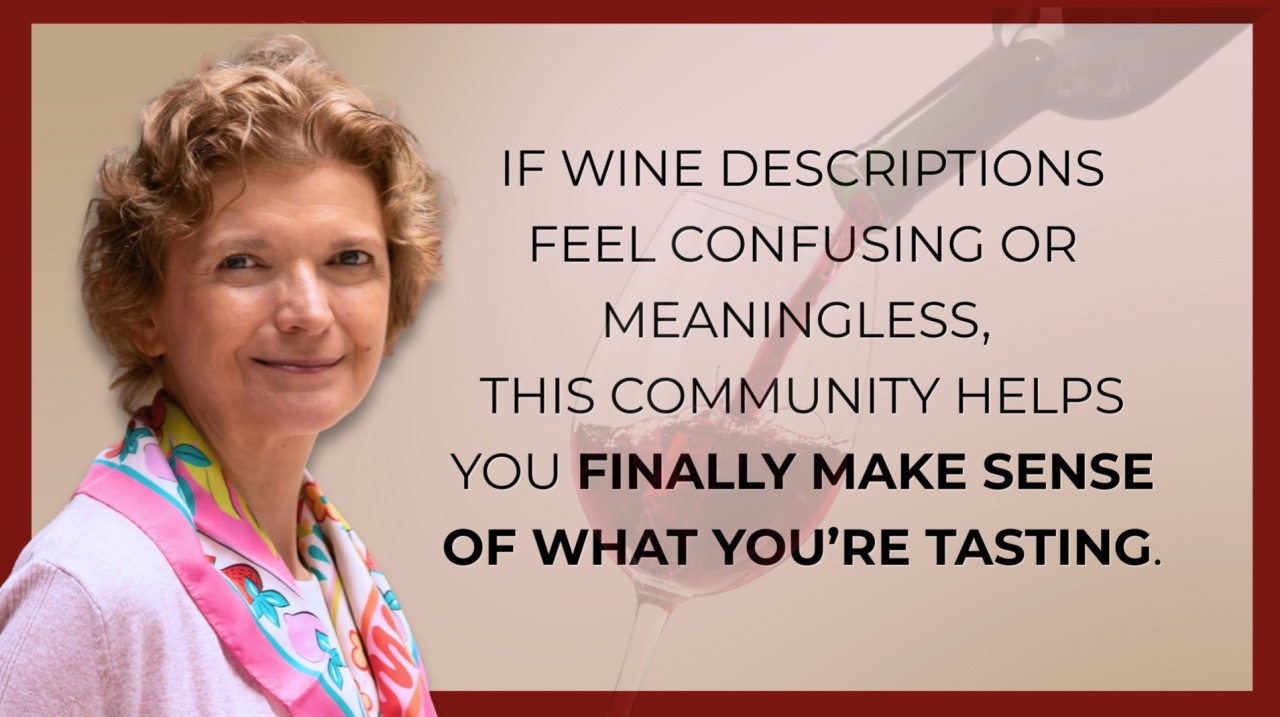Visiting winery tasting rooms now could surprisingly be a good time.

Visiting winery tasting rooms health and safety guidelines may be seen as too constraining. Wait, this experience might be the best you ever had!
Published March 24, 2021
Last Friday, I was leading a virtual wine tasting with students currently enrolled in my course, the PATH to Aroma Description Proficiency. One of them had been touring winery tasting rooms in Sonoma Valley for a few days. I was surprised and admitted that I didn't realize that the wineries had reopened.
She described briefly the restrictions imposed on guests and hosts. Winery tasting rooms are set outdoors; every guest must comply with the health and safety guidelines implemented at the winery.
But are these measures inconvenient?
I would argue that they are beneficial to your experience. Restrictions imposed on winery tours could surprisingly boost your tasting experience.
This is particularly true if your main objective is to sample wines and fill your trunk with a few bottles of your choice.
The small-group only policy contributes to reducing the ambient noise
Of course, this statement assumes the outdoor setting is a quiet location.
Practicing mindful wine tasting requires your full attention; a quiet place is ideal for your senses to detect and appreciate the wines' various sensory attributes. Your wine tasting notes will be so much memorable.
I understand that winery tasting rooms are great venues for socializing, and it is part of the experience. I think, however, that being social and being an attentive taster can't work hand in hand. Therefore, I recommend being clear on the objective of your winery tour.
Adopting social distancing will help you focus
When tasting rooms are at full capacity, several different conversations happen between the hosts and the visitors.
Overhearing conversations from nearby visitors or seeing their body language can induce several biases in your wine appreciation, mutual suggestions being the most likely bias. For example, you may overhear a comment on a specific aroma.
Unconsciously, you will look for it in the wine sample you are tasting, even if it's not the same wine. Social distancing will limit these distractions.
Respecting minimal interactions with the hosts
Tasting room hosts love sharing stories and technical information about the wines, often when they pour the wines for you.
All this information creates many expectations of what you should experience when smelling and tasting the wines. Unconsciously, you will look for your experience to match the wine description provided to you.
The fact that limited interactions between hosts and guests are recommended in current times limits the potential biases of suggestion and expectation.
Bringing your bottle of water and unsalted crackers
Wineries recommend that you bring your palate cleanser. I think this is a good thing and I hope this habit will stick with visitors in the future. I always find the water too cold, and usually, the bread or crackers are flavorful and not as bland as a palate cleanser should be. You may also consider bringing your spittoon. I will.
A few No-Nos
Please refrain from sanitizing your hands with fragrant hydroalcoholic gels or wipes. If you can, wash your hands with soap instead, and rinse thoroughly with hot water.
The fragrance and the alcohol smell will remain on your hands and be a distraction when you smell a glass of wine.
Back in the days of the H1N1 virus crisis in Ontario, our policy was that panelists had to sanitize their hands before entering our tasting room.
Although the sanitizing gel had no fragrance, the alcohol vapor generated when everyone was in the room was so intense that it became a distraction in itself. We had to wait for it to dissipate before starting the tasting session. We eventually asked people to wait a few minutes outside before entering the tasting room.
In summary
The CDC health and safety guidelines significantly limit the socialization among hosts and guests in winery tasting rooms.
However, I encourage you to see these measures as opportunities to sample wines in a low distraction environment.
You will be able to keep your focus on the wine tasting experience and probably have more enjoyment than in a crowded and noisy tasting room.
Are you ready to go back to winery tasting rooms?
Please leave a comment or question below. I would love to read your thoughts and suggestions.
Categories: : Lifestyle, Best practices
Download your Free Resources

Unlock your senses | The Sensory Approach to Wine Tasting
Templates, audio guide to carry out a sensory training

Join Curious Palates, a FREE Community and open training space to develop your wine palate with sensory training

Isabelle Lesschaeve, PhD
Blog author, Wine Sensory Scientist and Wine Tasting Coach
Internationally renowned wine sensory scientist, Isabelle demystifies wine tasting and helps serious wine lovers improve their senses of smell and taste to sharpen their tasting skills and tasting notes.
InnoVinum LLC is a participant in the Amazon Services LLC Associates Program, an affiliate advertising program designed to provide means for sites to earn advertising fees through advertising and linking to amazon.com.
 Isabelle Lesschaeve
Isabelle Lesschaeve 